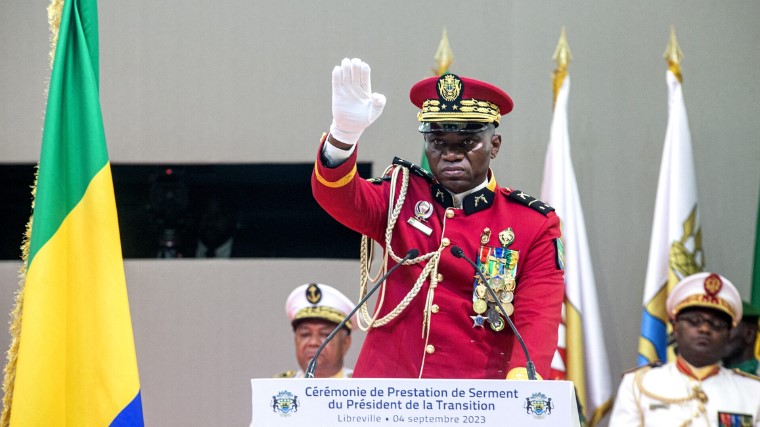Is there a secret to longevity? This health expert says 1,000% yes
In the era of social media, post-COVID, and with mental health at the forefront, a shift is taking […]

Gabon, located in the heart of Africa, is at a historic crossroads, commencing on a journey towards democracy against a backdrop of scepticism and political intrigue.
As the country transitions from military to civilian authority, peace talks have arisen as a source of hope, promising to transform the country’s future. However, lingering uncertainties and strategic manoeuvring cast a pall over the journey ahead.
The facts
General Brice Clotaire Oligui Nguema has encountered issues with military and civilian decorum, including turning up at a foreign presidential palace with a pistol and shaking hands with a visiting envoy while seated.
Gabon, which is ruled by the military, is currently engaged in peace talks aimed at constitutional and institutional reforms, with Gen. Nguema leading the junta.
The discussion, led by Archbishop Jean-Patrick Iba-Ba, began on April 2 and intends to prepare the ground for a restoration to civilian administration and a new constitution ratified by referendum.
But opposition members saw the dialogue as a ploy to strengthen Gen. Nguema’s candidature for the next elections and consolidate his control.
Gen. Nguema promised to restore civilian government after a two-year term following the coup that deposed President Ali Bongo Ondimba.
The debate is inclusive, incorporating a wide range of Gabonese stakeholders, but critics contend that many participants are Nguema supporters, potentially skewing the results
The arguments
Now, the conversation offers Gabon the possibility to shift from military to civilian authority, perhaps restoring democratic institutions and processes.
Opposition members and experts are sceptical, seeing the conversation as a way for Gen. Nguema to consolidate control and influence the political scene in his favour.
The mix of debate participants raises issues about fairness and transparency, with a large percentage of Nguema supporters, implying a predetermined outcome.
Despite Gen. Nguema’s pledges of democratic reforms, his actions and the structure of the discussion suggest a willingness to keep control and possibly extend his reign beyond the transition phase.
Previous national conferences in Gabon have failed to produce substantial long-term answers, resulting in persistent political tensions and unhappiness among the public.
The dialogue’s success is dependent on its capacity to address root causes, develop true reconciliation, and assure broad participation from all elements of Gabonese society, including political leaders and loyalists.

In the era of social media, post-COVID, and with mental health at the forefront, a shift is taking […]

With its fast speeds and revolutionary potential, 5G stands out as a noteworthy milestone in the field of […]